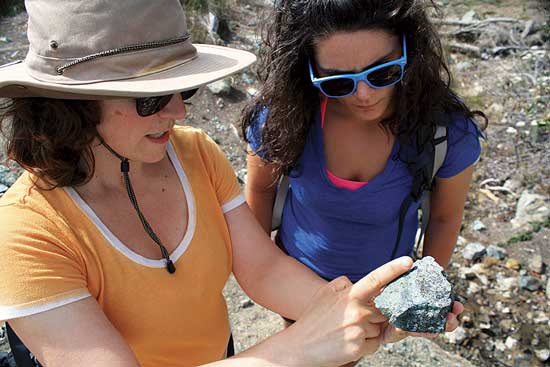Seeking the Origins of Life

University of Rhode Island geochemist Dawn Cardace and a team of scientists from a dozen other institutions are collaborating on a NASA-funded project to discover the origins and evolution of life in the universe.
The researchers will work at three field sites to study what they call “rock-powered life,” the mostly undocumented microbes that feed on the chemical energy released from the interaction of rocks and water deep beneath the Earth’s surface. Their findings will provide insight into the processes that fueled early life on Earth.
“We’re finding more and more evidence in the deep biosphere of microbes inhabiting pore spaces in rocks or in fluid pathways, where they aren’t dependent on photosynthesis,” said Cardace. “It’s life of a different sort—surviving not on solar energy or photosynthetically-derived carbon, but from the chemical energy inherent to our planet.”
Deep biosphere habitats on Earth may have analogs on other planets that might have sustained subsurface microbial life. Mars, for example, has a deep crust and mantle that are mineralogically similar to those of Earth. So the research has implications for the habitability of Mars and other planetary bodies.
 Home
Home Browse
Browse Close
Close Events
Events Maps
Maps Email
Email Brightspace
Brightspace eCampus
eCampus


